THIS POST MAY CONTAIN AFFILIATE LINKS. PLEASE SEE MY DISCLOSURES. FOR MORE INFORMATION.
It’s no secret that credit cards can be a powerful, helpful tool in terms of managing financial responsibility.
But for many people, it can also be an overwhelming and potentially disastrous nightmare.
You’ve likely heard stories about how easy it is to fall prey to crippling debt through irresponsible use of credit cards, but you don’t have to let this happen!
By familiarizing yourself with these 17 common mistakes surrounding credit card usage, you’ll not only learn how to better manage your spending habits and avoid costly missteps, but also gain the confidence needed to make wise decisions when using your plastic money.
So read on if you’re ready take control over charging your purchases and avoid any disastrous financial woes!
#1. Buying On Emotion

Buying on emotion can get you into credit card debt fast. If you are going through a tough time, you need to hide your credit cards.
Too often, you get sucked into making purchases you will regret later, and the result is years of financial headaches and years until you catch up financially, if you can catch up at all.
Get help if you need it. Otherwise, pay with cash until you get back to a better state of mind.
#2. Never Reporting A Lost Or Stolen Credit Card

If you ever lose your credit card or it gets stolen, you must report it immediately to the credit card company. This is because there is a good chance you are a victim of identity theft and someone is using it to make fraudulent purchases.
And while most credit cards will not make you liable for unauthorized purchases, there is still the headache and worry over if someone steals your identity.
So if you lose your credit card, report it immediately. Your credit card company will issue a new card with a new number and deactivate your old card.
If you notice charges on your statement before you realize your card is missing, you must call the card company to dispute the charges.
Luckily, thanks to the Fair Credit Billing Act, you are only responsible for $50 worth of the charges. However, most card companies offer zero liability.
#3. Not Making Your Monthly Payment At All

As bad as it is to pay late if you stop making your credit card payment, even worse things happen.
If you are 30 days late or more, it gets reported to the credit bureaus, and as a result, your credit score drops.
This results in higher interest rates on future loans you take out, or you might not even qualify in the first place.
And since insurance companies and employers look at your credit report, you might pay higher insurance premiums and get passed over for a job.
#4. Maxing Out Your Credit Card
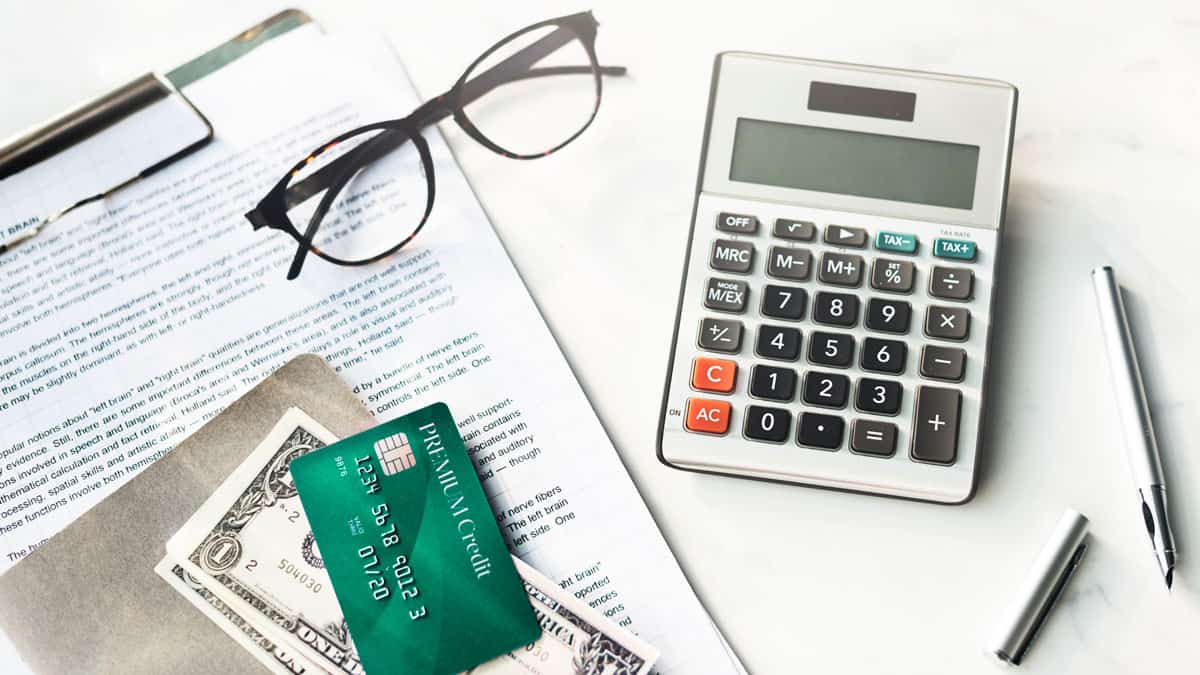
Another credit card mistake people make is maxing out their credit card. While having a high credit limit on a card is nice, it’s not a good idea to be hitting it, ever.
This could be a sign that your spending is out of control. Or worse, you are getting into high-interest debt that will be hard to dig out from.
Instead, learn how to use your credit smartly so that you can enjoy the benefits it has to offer.
You should never have a high balance on your credit card. Ideally, you want to keep your balance to at most 30% of your available credit.
This 30% is your credit utilization ratio, and you get to it by dividing your total outstanding credit card balances by your total available credit.
So if you have two credit cards, both with $500 balances, and each has $2,000 available credit, you divide $1,000 by $4,000 to get a ratio of 25%.
#5. Opening Too Many Credit Card Accounts
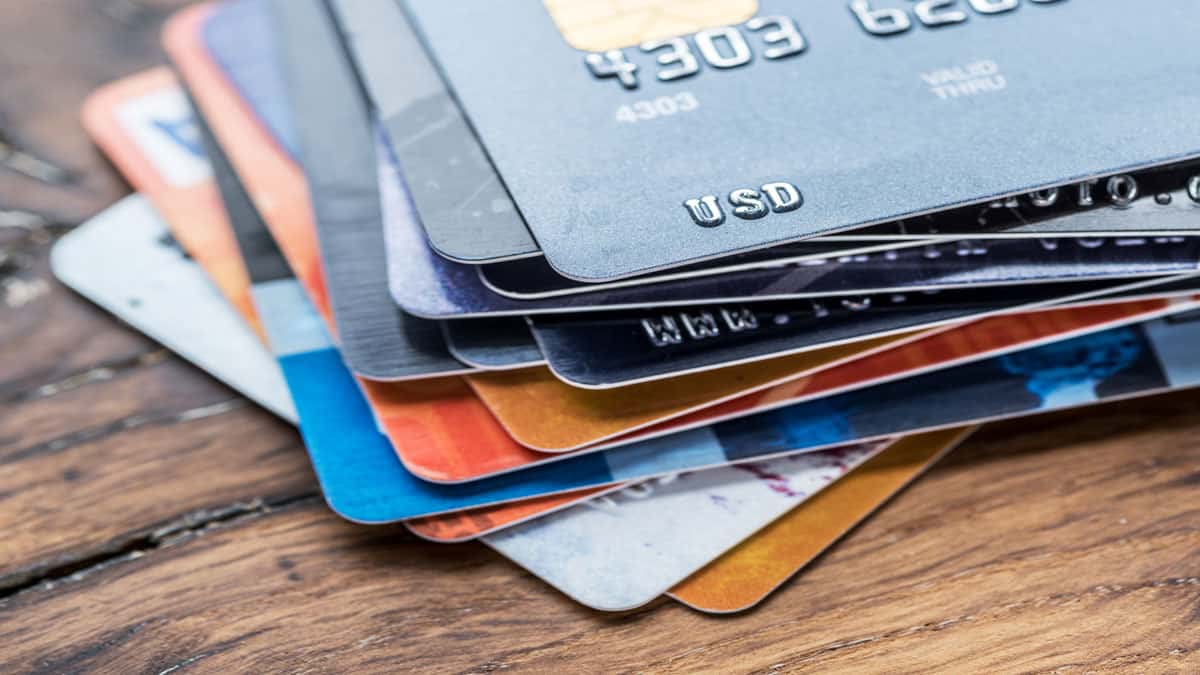
As bad as it is to close old credit accounts, opening many accounts is almost as bad.
The more accounts you have open, the greater the risk of overspending. And credit card and loan companies know this.
If you don’t have a long and solid credit history, having ten credit card accounts open with a total credit limit of $40,000 can be a red flag. And if you open too many accounts in a short period, this will make creditors nervous.
So be strategic when opening new credit card accounts, and don’t overdo it.
#6. Paying For An Annual Fee Card

A handful of credit cards charge an annual fee to use. If you use a credit card with an annual fee, you need to ask yourself if you are getting enough value from it to offset the fee.
You can often find a similar or better card without an annual fee and save money. This can end up being a large amount of money too. If you pay the average annual fee of $95 over ten years, you pay $9,500 in fees.
Did you earn enough rewards to make up for this amount? Chances are you didn’t.
Now, there might be a good reason to pay an annual fee.
We have one credit card that has an annual fee. We only pay it because we earn 6% cash back on groceries and 3% cash back on gas. The amount we earn in cash back far outweighs the annual fee.
The bottom line is to review any cards you have with an annual fee and decide if the fee is worth it or if there is a better card without a fee.
#7. Making Late Payments

Arguably one of the biggest mistakes you can make with your credit card is to make a late payment. There are a few reasons for this.
First, you will get charged a late fee, typically around $40. While this doesn’t sound bad, it gets worse.
If you are on a promotional APR or introductory offer, this rate goes away, and the penalty APR goes into effect, which tends to be 20% or higher.
Even if you are not on a promotional APR, you still go on the penalty APR, which is higher than the standard purchase interest rate. So not paying your bill on time results in fees and higher interest charges. The bottom line is you need to know the due date and make payment before this date.
You can make a note to remind yourself or even set up automatic payments with your credit card issuer.
Either way, you must pay your bill on time every month.
#8. Randomly Closing Accounts

Over the years, we might amass a lot of credit card accounts.
We open a store credit card to save 15% off a large purchase or open a new account to take advantage of a balance transfer offer.
Then we never use the credit cards again. In these cases, you can close the account once you pay off the bill. Your credit might take a minor, short-term hit, but it will recover quickly.
What you don’t want to do is close all your accounts or even accounts you’ve had for a long time.
This is because a large part of your credit score is based on the time you’ve had an account. The older your account, the more it shows how responsible you are with credit.
So that first credit card you ever got? Do not close it. Just stop using it if it doesn’t have the best terms. Then once a year, use it to buy something small.
If you go out to dinner, use the card once and pay off the balance. Then use it again for something small next year.
This will stop the credit card company from closing your account, preserving your credit history.
#9. Not Using A Credit Card That Offers Rewards
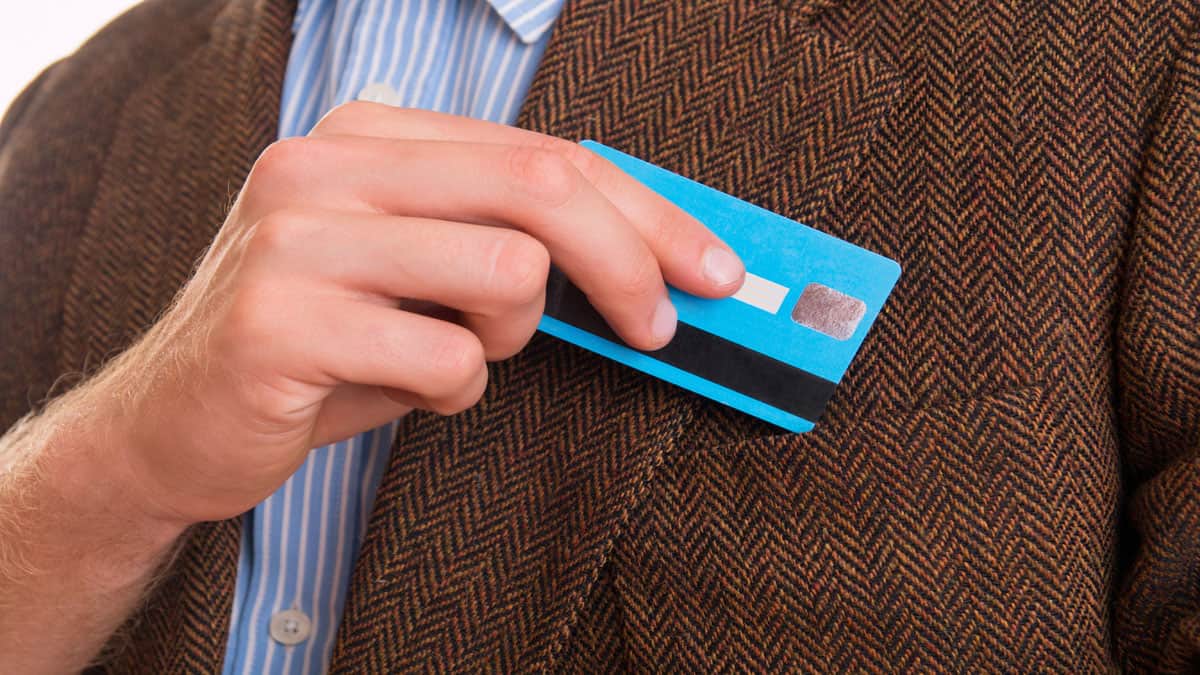
Many credit cards today offer cash back or travel rewards to users. This usually happens as a 1% cash back bonus, or a point per dollar spent reward.
So if you spend $10, you get $0.10 in cash back or 10 points if you have a travel credit card.
While these rewards sound small, over time, they add up. We strategically use our credit cards and average $1,500 in cash back each year.
This is free money since we pay our balance in full every month. We use invest this money or use it to help fund our kid’s 529 plan.
Some people use travel points to travel for free or close to free. At the end of the day, if you are going to pay with credit cards, you need to take the time to find the right rewards credit cards so you can enjoy the benefits they offer.
#10. Not Being Realistic About Debt

Sometimes people get into a little debt and don’t take it seriously.
They pay the minimum and think that next month, they will take care of it.
But then they forget and charge as usual.
When the next bill comes, their jaw hits the floor because they owe thousands more.
It’s important that you take debt, no matter the amount, seriously.
Otherwise, it could quickly spell disaster.
#11. Not Understanding The Difference Between Purchases, Cash Advances, And Balance Transfers

Credit cards offer three ways to use your card, purchases, cash advances, and balance transfers.
Here is an explanation of each.
- Purchases: Using your credit card to make everyday purchases
- Cash Advance: Using your card to get access to cash
- Balance Transfer: Moving a balance from one credit card to another card.
Understand that each way to use your credit card carries a different interest rate.
For example, with purchases, you pay the standard purchase APR and have a grace period until your payment is due.
With a cash advance, you have a much higher interest rate, and you must pay back the money borrowed when the statement is due. There is no paying a minimum and carrying a balance.
Finally, with a balance transfer, you typically get a lower APR for a set amount of time and are charged a fee. If used right, you can save money with balance transfers to help you get out of debt.
At the end of the day, it is crucial you understand how each of these works so that you don’t get hit with any surprises and possibly end up in more debt or ruin your credit.
#12. Not Understanding How Deferred Interest Works

Not many consumers understand how deferred interest on credit cards work. As a result, they open up their credit card statement one day and have a nasty surprise. The good news is that most credit cards don’t have this feature.
You will encounter deferred interest with retail credit cards, like when you sign up for a card in the store.
The deferred interest promotion works like this.
You agree to sign up for the credit card and pay no interest for one year. The catch is that even though you are not paying interest, interest accumulates. And at the end of the introductory period, one year in this case, if you haven’t paid off the entire balance, you will be charged interest from day one.
So if you charged $5,000 on a credit card and at the end of the promotion, you have a balance of $500, you don’t owe interest on the $500. You owe interest on the entire $5,000 for the whole year.
Because of this, if you do sign up for this offer, you need to be very careful.
I’m not telling you to avoid this offer, because you often get a nice discount on your purchase, say 15% or 20% off. You need to pay off the balance before the promotion ends. When I worked at a retail store, I explained this to consumers and walked them through the process.
If they spent $5,000 and the promotion lasted one year, I divided $5,000 by 11 months and told them they needed to pay a minimum of $454 monthly.
Why 11 months and not 12 months? I didn’t want to take the chance of something happening. It’s better to pay it off before the offer ends than the day it ends. Also, understand if you are late with a payment, the deferred interest option goes away, regardless if you are still in the promotional period.
#13. Signing Up An Authorized User

An authorized user is a person you allow on your credit account.
They get their own credit card to make charges but are not liable to pay the bill.
While having an authorized user is wise to help your child build credit or for your spouse to use the same credit account as you, you shouldn’t just allow anyone on your account.
This is because of the reason I mentioned. They are not responsible for any payments. So if you don’t use your credit card to make any purchases, but an authorized user made $3,000 in purchases, you have to pay the balance.
If you don’t, you get hit with late fees, destroying your credit history. The bottom line is, think long and hard before you allow anyone on one of your credit cards as an authorized user.
#14. Spending More Than Your Credit Limit

A few things could happen if you spend more than your credit limit.
First, for any of the below consequences to happen, you need to have signed up for over-the-limit protection, which allows you to overspend in the first place.
If you didn’t sign up for this, and since most credit cards no longer offer it, you probably didn’t, your charge will be declined.
But if you did sign up for over-the-limit protection, here are the things that could happen.
- Over The Limit Fee: This will happen as almost all credit cards will charge you a fee.
- Higher Interest Rate: This too will happen, and your APR will just to a higher penalty APR.
- Lower Credit Limit: This could happen, as your credit card company could lower your limit. As a result, thinking you are getting into financial trouble.
- Lower Credit Score: Since your debt-to-credit ratio will worsen, there will be a negative impact on your credit score.
- Closed Account: If you exceed the limit too often, the credit card company could close your account.
As you can see, your credit has serious impacts if you spend over your limit.
The biggest that most people will face are fees and higher interest rates, which is not ideal.
#15. Only Making The Minimum Payment
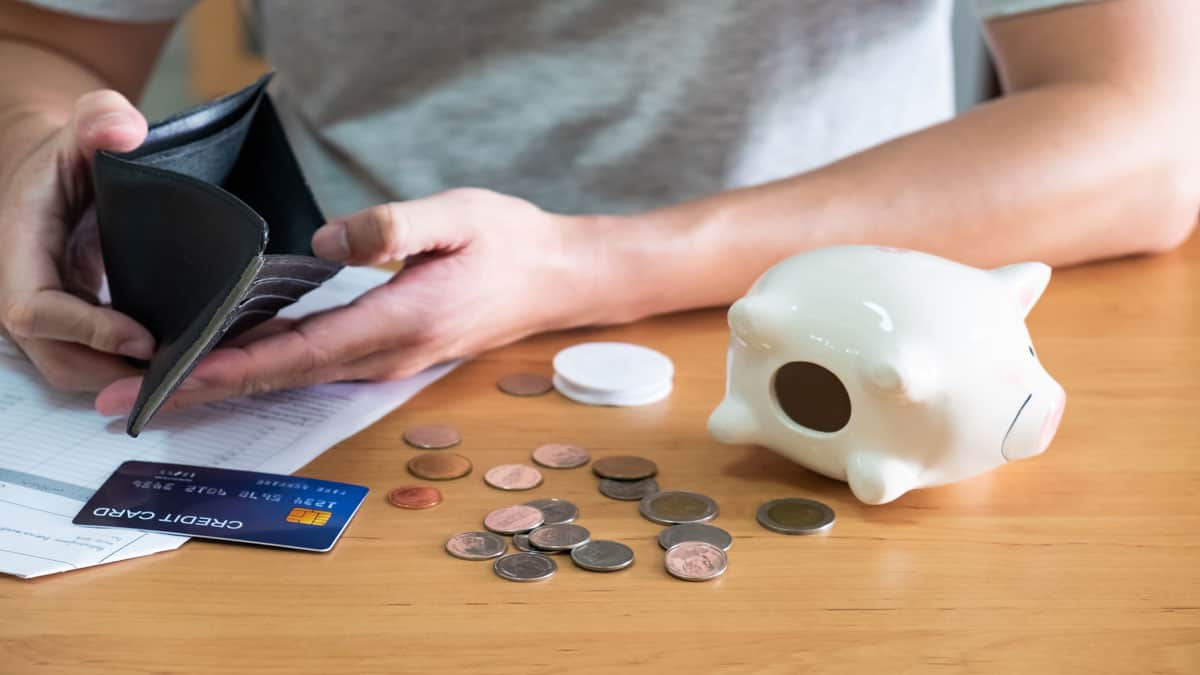
One of the worst things you can do with credit cards is only to pay the minimum amount due. While it sounds nice only to pay a small portion of your balance, it can quickly get out of control.
For example, let’s say you have a $5,000 credit card balance and pay 17% interest. Each month you pay the minimum, which is $100.
It will take you over 30 years to pay off this credit card, and you will pay over $10,000 in interest. If your balance is a $5,000 bedroom set, it costs you over $15,000 when you consider interest.
Paying your credit card bill in full every month is important to avoid this scenario.
If you can’t pay your bill off each month, you need to stop using your credit card until you can use it smarter.
#16. Letting Your Rewards Expire

If you already use a rewards credit card, it is important to understand when and if your rewards expire.
Not all credit cards have rewards expire, and the ones that do usually do so after a few years. By letting your rewards expire, you lose out on great discounts you otherwise could get.
So if you do have rewards, ensure you understand the process of if and when they expire and how to avoid getting to that point.
#17. Trying to Travel for Free Without a Plan

The world of travel hacking has gone mainstream and as a result, ordinary people are playing the credit card churning games, hoping to score free trips.
But many of these people have no plan.
As a result, they end up with no free travel and a mountain of credit card debt.
Pros And Cons of Freezing Your Credit

With identity theft everywhere, it can be hard to keep your data safe. One of the simplest and most effective things you can do is freeze your credit.
The other main benefit is it is 100% free. But it does have some drawbacks.
LEARN THE PROS AND CONS OF FREEZING YOUR CREDIT
The Hidden Costs Of Debt
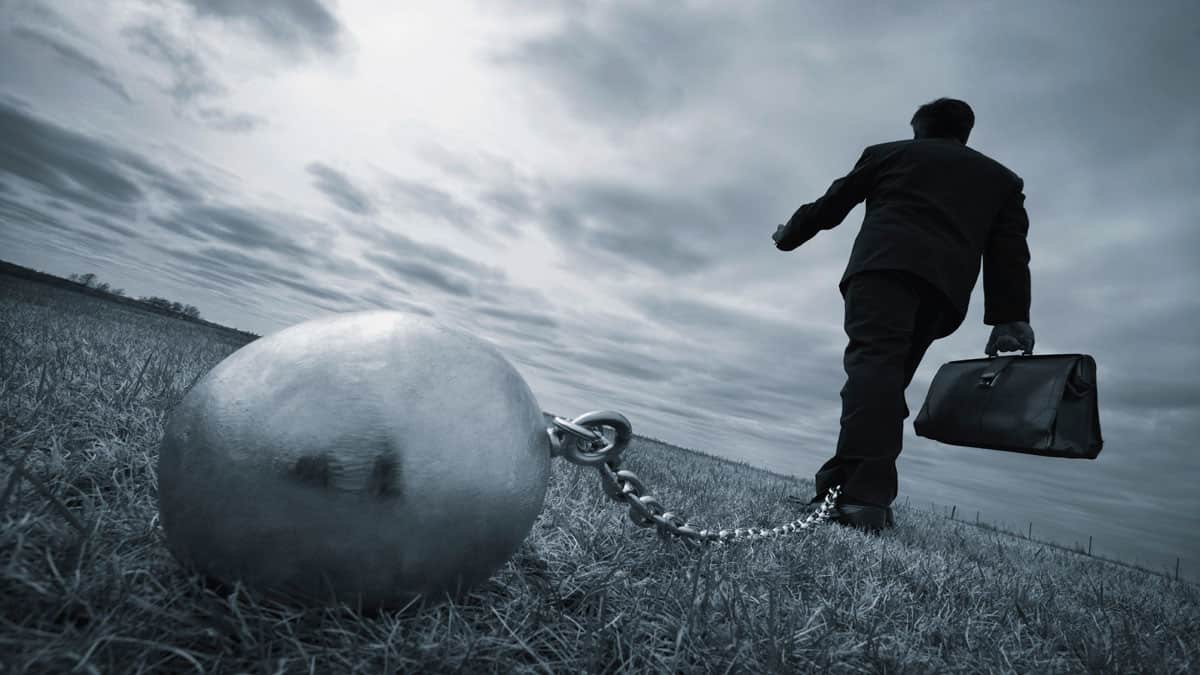
We all know the financial cost of debt – paying interest to the credit card company.
But there are other costly ways debt impacts you that you need to know.
DISCOVER THE HIDDEN COSTS OF DEBT
Is Your Debt Out Of Control?
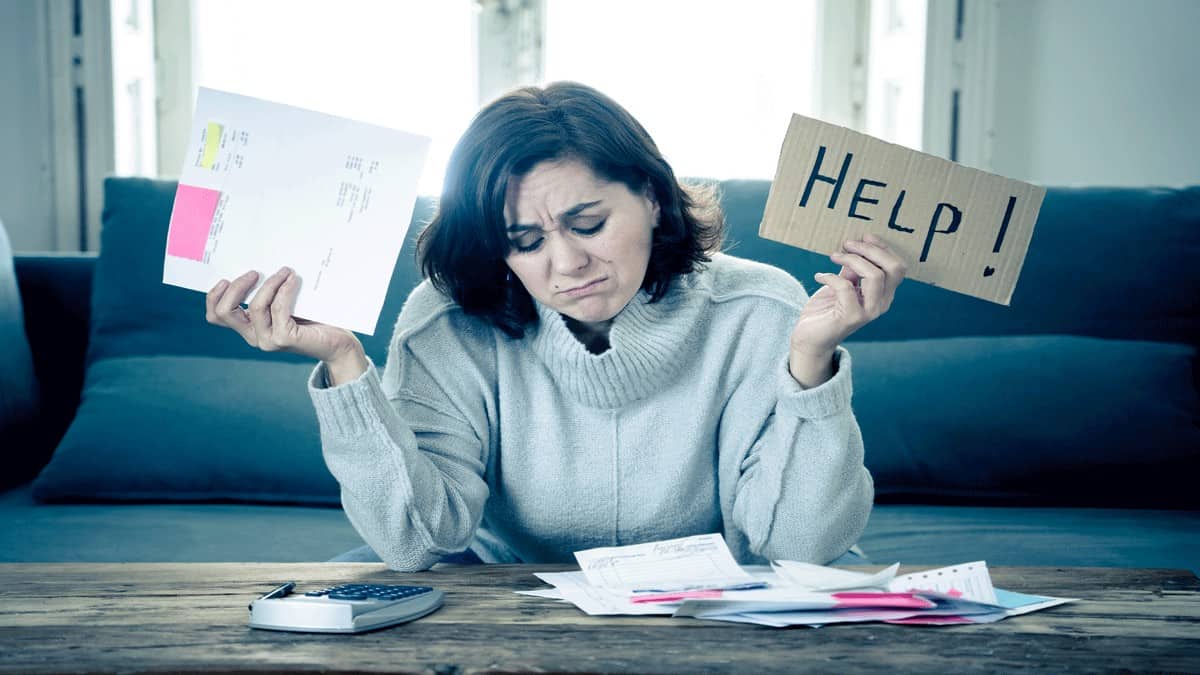
Do you know the warning signs if your debt is out of control?
While high balances and only being able to make minimum payments are one sign, they aren’t the only one
SEE THE WARNING SIGNS YOUR DEBT IS OUT OF CONTROL
Dave Ramsey’s Baby Steps

Using Dave Ramsey’s Baby Steps is great for getting your finances back on track.
But you could do better with a few simple tweaks to his system.
Use The Debt Snowball To Become Debt Free

There are various ways to pay off your debt, but the two most popular are the debt snowball and the debt avalanche.
Find out which one is best for you.
DEBT SNOWBALL VS. DEBT AVALANCHE
I have over 15 years experience in the financial services industry and 20 years investing in the stock market. I have both my undergrad and graduate degrees in Finance, and am FINRA Series 65 licensed and have a Certificate in Financial Planning.
Visit my About Me page to learn more about me and why I am your trusted personal finance expert.

